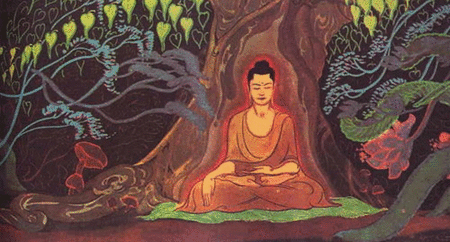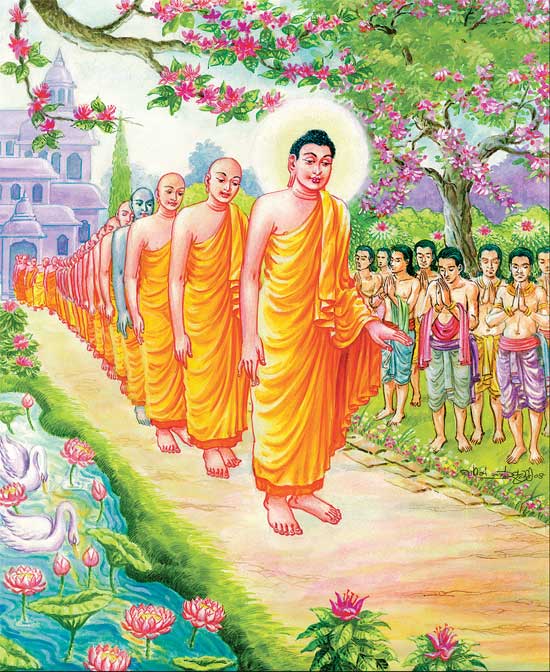The Filial Piety Sutra

The Buddha Speaks about the Deep Kindness of Parents and the Difficulty in Repaying it.
Thus I have heard, at one time, the Buddha dwelt at Shravasti, in the Jeta Grove, in the Garden of the Benefactor of Orphans and the Solitary, together with a gathering of great Bhikshus, twelve hundred fifty in all and with all of the Bodhisattvas, thirty-eight thousand in all.
At that time, the World Honoured One led the great assembly on a walk toward the south. Suddenly they came upon a pile of bones beside the road. The World Honoured One turned to face them, placed his five limbs on the ground, and bowed respectfully.
Ananda put his palms together and asked the World Honoured One, “The Tathagata is the GreatTeacher of the Triple Realm and the compassionate father of beings of the four kinds of births. He has the respect and reverence of the entire assembly. What is the reason that he now bows to a pile of dried bones?
The Buddha told Ananda, “Although all of you are my foremost disciples and have been members of the Sangha for a long time, you still have not achieved far-reaching understanding. This pile of bones could have belonged to my ancestors from former lives. They could have been my parents in many past lives. That is the reason I now bow to them.” The Buddha continued speaking to Ananda, “These bones we are looking at can be divided into two groups. One group is composed of the bones of men, which are heavy and white in color. The other group is composed of the bones of women, which are light and black in color.”
Ananda said to the Buddha, “World Honoured One, when men are alive in the world, they adorn their bodies with robes, belts, shoes, hats and other fine attire, so that they clearly assume a male appearance. When women are alive, they put on cosmetics, perfumes, powders, and elegant fragrances to adorn their bodies, so that they clearly assume a female appearance. Yet, once man and women die, all that is left are their bones. How does one tell them apart? Please teach us how you are able to distinguish them.”
The Buddha answered Ananda, “If when men are in the world, they enter temples, listen to explanations of Sutras and Vinaya texts, make obeisance to the Triple Gem, and recite the Buddha’s names, then when they die, their bones will be heavy and white in colour. Most women in the world have little wisdom and are saturated with emotion. They give birth to and raise children, feeling that this is their duty. Each child relies on its mother’s milk for life and nourishment, and that milk is a transformation of the mother’s blood. Each child can drink up to one thousand two hundred gallons of its mother’s milk. Because of this drain on the mother’s body whereby the child takes milk for its nourishment, the mother becomes worn and haggard and so her bones turn black in colour and are light in weight.” Continue reading




 1. Listen.
1. Listen.











